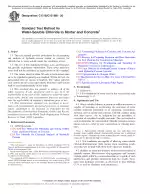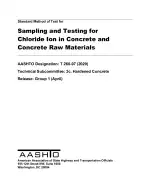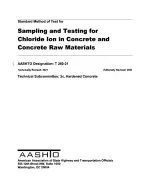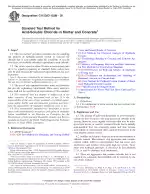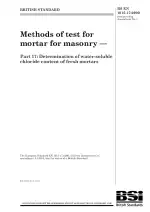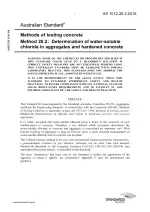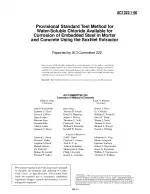ASTM C1218/C1218M-20 PDF Download
Standard ENStandard Test Method for Water-Soluble Chloride in Mortar and Concrete
Also Known As:
The ASTM C1218/C1218M-20 standard provides procedures for sampling and analyzing hydraulic-cement mortar or concrete for water-soluble chloride content. Water-soluble chloride, if present in sufficient amounts, can initiate or accelerate corrosion of metallic materials embedded in or contacting cementitious mixtures. Therefore, determining the chloride content is important in assessing the potential for corrosion in new construction or existing structures.
Note 1 in the standard emphasizes that water-soluble chloride content can vary over time, either increasing due to additional chloride ingress or decreasing due to chloride binding or leaching. As a result, monitoring chloride content periodically is necessary to assess corrosion risks accurately. Additionally, the standard acknowledges that test conditions can influence chloride determinations, cautioning users when comparing results from this test method to those from other methods.
The standard also addresses potential interferences with chloride determination. Sulfides, commonly found in blast-furnace slag aggregates and cements, can distort test results and lead to erroneously high chloride levels. To eliminate this interference, Treatment with hydrogen peroxide, as outlined in Test Methods C114, is recommended. Furthermore, the standard recognizes that some aggregates may contain chloride that is not available for corrosion, which will still be detected by this test method.
The standard includes explanatory notes and footnotes, although they are not considered requirements. These additional details provide further guidance and clarification throughout the standard.
| Descriptors | water-soluble chloride,Concrete,Hydraulic Cement,Mortars,Inorganic Matter Content,Sampling |
| ICS Codes | 91.100.10 - Cement. Gypsum. Lime. Mortar |
| Language(s) | English |
| File Size | 71.7 KB |

